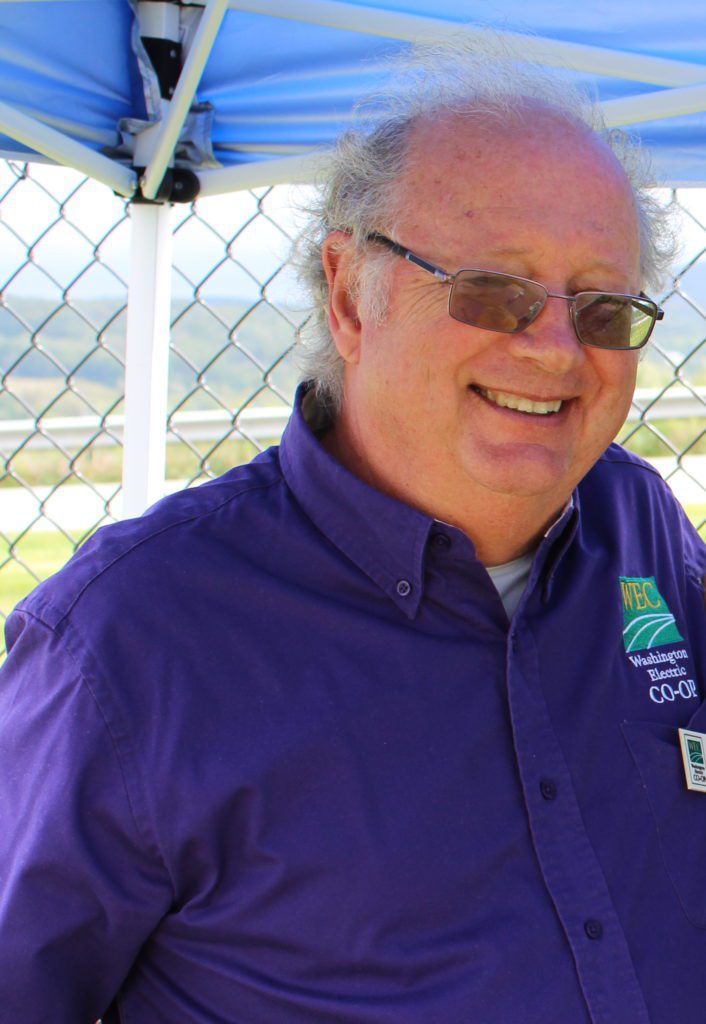WEC budgeted accurately for 2021, despite higher purchased power bills due to decreased production at Coventry
By Don Douglas
Washington Electric Cooperative is committed to providing the excellent service our members expect and deserve. The catastrophic pandemic is still with us as we attempt to learn to live with the virus that has caused so many disruptions to our lives. Our office is again closed to walk-ins from the public and is open by appointment only. We have had employees test positive for COVID, but so far, it has not affected our ability to respond to outages or handle day-to-day business.

WEC’s revenue from members in 2020 was $16,854,741 and $16,944,489 in 2021. So, we guessed right in the budget.
Don Douglas
Of course, nobody bats 1,000. We did not anticipate decreased methane gas production at Coventry that caused us to incur higher power bills than expected. Methane production comes from anaerobic microbial activity, and during construction and pipe replacement, that anaerobic environment was disturbed, causing a marked decrease in methane production. However, we are proud to report that WEC met all its loan covenants in 2021.
In 2020, WEC experienced increased energy sales, which guided us in setting the budget for 2021. We guessed that many people would still be working remotely and that we would continue to see about the same level of residential electric sales. WEC’s revenue from members in 2020 was $16,854,741 and $16,944,489 in 2021. So, we guessed right in the budget.
The Net Margins in 2021 were $1,040,204, which is down from $1,720,571 in the prior year. Coventry production is the main reason for a better year in 2020. When WEC gets more energy from the plant, we don’t need to buy quite so much electricity from other sources, or we can sell more excess. Each kilowatt hour produced at Coventry comes with the sale of Renewable Energy Credits (RECs). The value of the RECs is very much determined by the market, which fluctuates; but more to sell is obviously better than less, no matter the value of the REC.
Capital credits are one of those things unique to cooperatives. Since co-ops are owned by their members, money is returned (retired) to them over the years. The amount retired is different each year because capital credits are all the money in excess of the Co-op’s operating costs (we call these “margins”). In short, WEC can return money to members when there’s a bit leftover at the end of the year. The Board of Directors is responsible for deciding if we can retire capital credits, and how much. Available cash is the metric we use to make this decision. Some years WEC has had very large allocations, and some years they were small, or even zero.
Our goal is to keep close to a 15-year cycle. Inactive members get a check in the mail if the total amount retired to them that year exceeds $20, and active members get a credit on their November bill. Since we began retiring capital credits in 1998, WEC has returned over $9,000,000 to members. Last year we set out to retire $770,000, fully retiring the capital credits from 1996 and part of 1997. We were also able to retire portions of 2013 (Contributions In Aid Of Construction) and of 2020.
We also invite members to donate their capital credits to the Community Fund, which provides grants to non-profit organizations in the four counties WEC serves. This is a great way to make a real difference in your community. At present, 1,400 members contribute more than $55,000 each year. For more information, please call the Co-op at 802-223-5245 or visit wec.coop/capital-credits.
On behalf of the Board of Directors, I want to thank the entire Finance Department for their hard work, attention to detail (every dollar) and their dedication to Washington Electric Cooperative. Copies of the audit can be found on the website at wec.coop/about-wec/financials.
